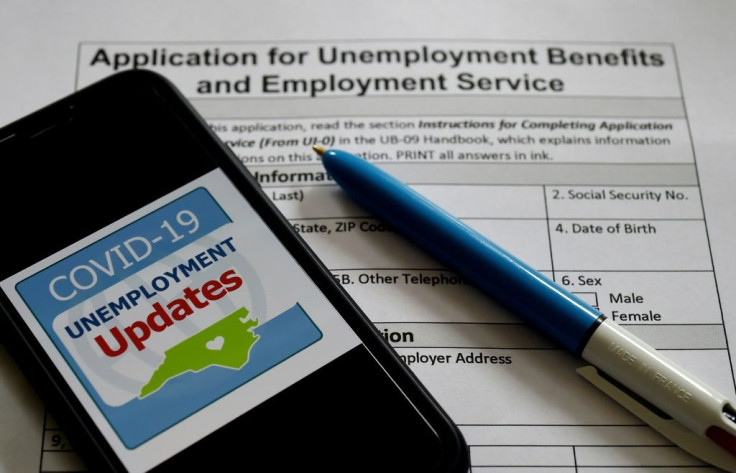How Many Jobs Will Be Lost Because Of The Coronavirus? US Agency Predicts Big Losses In 2020, 2021

KEY POINTS
- CBO predicts unemployment will peak at 15.8%, fall to 11.5% by the end of the year and then average 9.3% next year
- The agency forecast a 37.7% contraction in the second quarter that will leave the economy 5.6% smaller by the end of the year
- CBO said the relief packages passed by Congress so far did a lot to keep the situation from being even worse
The nonpartisan Congressional Budget Office on Tuesday projected unemployment will peak at 15.8% in the third quarter of this year and average 9.3% next year, falling to 8.6% by the end of 2021. CBO also predicted an economic contraction of 37.7% in the second quarter, slightly smaller than it predicted last month.
Some economists have predicted joblessness caused by the coronavirus pandemic will reach 20% to 25% as the economy struggles to recover from lockdowns imposed to stem spread of COVID-19.
During the Great Depression, the unemployment rate hit 25%. During the Great Recession, unemployment topped out at 10%.
More than 36 million Americans have filed initial unemployment claims since mid-March. Federal Reserve Chairman Jerome Powell said this week 20 million people have lost their jobs due to the virus. April’s unemployment report put the jobless rate at 14.7% but subsequent claims pushed that up one more point, the Labor Department said last week.
The CBO predicted unemployment will stand at 11.5% by the end of the year, and the economy will be 5.6% smaller than at the end of 2019. The report also noted it will be more difficult for the economy to recover as long as social distancing remains necessary to stem the pandemic.
The CBO recognized Congress, which has passed $3.6 trillion in coronavirus relief, for taking action beginning in March to mitigate the economic impact of the pandemic.
“In particular, greater federal spending and lower revenues will cause real GDP [gross domestic product] and employment to be higher over the next few years than they would be otherwise,” the CBO said.
House Democrats have proposed a fifth mitigation package, the $3 trillion HEROES Act, which is seen as an opening salvo in negotiations with Senate Republicans and the White House. The measure, which passed the House last week, was not expected to see the light of day in the Senate and already has been rejected by President Trump and Senate Majority Leader Mitch McConnell.
House Budget Chairman John Yarmuth, D-Ky., said the CBO report bolsters the Democrats’ push for further relief.
“The historic aid packages delivered so far have been critical, but Congress must continue to help families who are stretching every penny, support Main Street businesses struggling to stay afloat, and ensure that protecting the lives and livelihoods of the American people remains the top priority in all policy decisions,” he said.
Federal Reserve Chairman Jerome Powell said in recent days such massive spending is necessary to prevent lasting damage to the economy.
© Copyright IBTimes 2025. All rights reserved.




















